Time check, 7.59pm. Venue: Urban Knight, a terrace bar in Bugembe, Jinja City, atop National Water and Sewerage Corporation (NWSC) offices. It is business or booziness as usual, with revellers playing pool, with no face masks, no sanitising, and no keeping social distancing.
Such is the state of things for many bars and nightclubs across the country, despite the tough measures imposed by government last year to curb the spread of Covid-19.
Government closed all bars and nightclubs, with President Museveni defending the ban and warning that keeping both physical and social distancing among revellers would be hard to enforce.
But many bars and nightclubs across the country have remained open for more than a year now and in direct violation of the President’s orders.
The hangouts also seem undeterred by the current spike in Covid-19 infections and deaths, spurred by laxity of Ugandans to observe the standard operating procedures (SOPs).
The multiple police raid on Kampala’s high-end Golf Club at Kololo, Levels Lounge at Kamwokya, and Garage Bar in Ntinda last week, had both well-placed patrons and common merrymakers arrested.
But who is to blame for these violations?
President Museveni, in his latest address to the nation on June 6, announced another 42 days of lockdown.
He said: “The district taskforces chaired by resident district commanders (RDCs) are the bedrock of the fight against Covid-19.”
But some of these RDCs and security officials tasked with enforcing the SOPs have become the selfsame violators.
In Kitgum Municipality, in the heart of the central business district, an RDC is said to run a night club that attracts hundreds of revellers, who cram the night spot’s hall and its verandah at weekends.
Across the town’s Pager River bridge on the town’s northern fringes is yet another nightclub said to be run by a vocal political latecomer into the ruling National Resistance Movement (NRM) party.
Similarly, in Mbale City, the bars have barely followed the presidential orders.
Two weeks ago, the police swooped on bars shortly after President Museveni’s televised address.
The President had issued a new set of measures to contain the surging cases of Covid-19.
Among the bars that had not shut were Oax Bar and Restaurant, formerly known as Sukali, in Namakwekwe Ward, Northern Division, Mbale City.
It is said to be owned by a son of an influential businessman in Bugisu Sub-region.
In February, police arrested some 22 revellers from this same bar after a tip-off from concerned residents.
Steven Mauso, a resident of Link Cell in Mbale City, said they have for long complained to the security agencies but in vain.
“They (security agencies) knew the bar was operating but could not do anything about it. They were corrupted,” Mauso told Saturday Monitor.
Embassy Bar and nightclub in Nkoma Ward, Northern City Division, is another resort that operated until last week and is believed to be owned by an Internal Security Organisation (ISO) operative.
Some police officers told Saturday Monitor that the owner is on good terms with the top police officers in the town.
“Whenever we had operations, we would not go there,” one of the officers said.
Other hangouts include Super Mambo in Namakwekwe and HI5 Bar and Lounge in Senior Quarters, with locals saying the revellers spend nights, especially at the weekends, in those bars on the watch of police officers.
The residents had for long accused security officers of selectively enforcing the Covid-19 rules by allowing some bars to run while blocking others.
Arafat Kato, the officer-in-charge of Mbale Central Police Station, warned the bar owners to stop violating the Covid-19 guidelines.
The Elgon Region police spokesperson, Rogers Taitika, said police will continue targeting bars and nightclubs that operate illegally.
Rose Mutonyi, a local leader, however, said bar owners have continued violating the Covid-19 guidelines because it is their source of livelihood.
“They operate secretly because they must earn a living. The government should allow them to reopen but with enforcement of SOPs,” she said.
In Busia, Embassy Bar, formerly Sangalo Inn in Sofia, on the Uganda-Kenya border, has never closed with revellers savouring their drinks in full glare of the public.
The bar is said to be owned by a top officer in the Uganda People’s Defence Forces (UPDF) and sometimes, police are seen guarding the bar as the binge rolls into the night uncurbed.
Galaxy Hotel, which also runs a big bar, has remained open in Busia Town. The facility, famed for attracting crowds, including security operatives, has flung open its doors for more than a year now despite the tough guidelines.
“Once here (Galaxy), you know you are secure because we share a bottle of wine and laugh with the men who are supposed to be enforcing the rules,” one of the patrons says.
Teso area, which teems with makeshift bars and specialises in selling local brew or malwa, is another hideaway, which has beaten the tough measures to remain operational.
Here, the patrons swig away, dance the rhumba from music floating over across the border fence from Kenya as the nyama choma orders are ticked off.
In Jinja, the story is not any different as some bars owned by and frequented by security operatives never close.
Muna Bar and Club is one of such bars that remained operational despite the presidential directive to prevent the spread of Covid-19.
Some of the revellers who were arrested at Levels Lounge Bar and Restaurant in Kamwokya, Kampala, for flouting Covid-19 guidelines, board a police pick-up truck to the police station on June 9. PHOTO/COURTESY
One of the workers, who preferred to remain unnamed, said: “We hide our bar customers at night and most are from Kampala because Jinja police is not as strict as their Kampala counterparts,” he says.
Eddy, a reveller who claims to have patronised most of bars in Jinja City, says Pit Stop Bar (Rugby Club), Café 49 and Nile Chillers are some of the bars that have made a lot of money during the lockdown because they have never shut.
“During weekends, Pit Stop operates until the wee hours of the morning and the Rugby Grounds, which acts as the parking lot, is always crammed with vehicles. I am told it is owned by a UPDF Major.
“So, each time there is an operation, a call comes through, usually ‘from above’, and management is alerted to turn down the volume or order the revellers to leave,” he says.
“After Pit Stop, I relocate to Nile Cheers Wine and Spirits on Lubas Road, mainly patronised by senior UPDF officers,” he adds.
Urban Knight in Bugembe Town sits above NWSC offices, and gets busier with the lockdown. Here, the patrons are perched on stools, drinking the night away while others play pool or watch TV from a giant projector screen in an adjacent room.
While the revellers, waiters and waitresses will not let out the owner, the hideaway has never crumbled under the weight of the lockdown.
But a waitress said one evening last month, when police officers arrived unannounced at their bar, fear gripped them, fearing they would all be arrested, only for the manager to step out, speak to the group and business continued, but with the music turned low.
The security guard at the basement said the bar remains open under the guise of running a lodge; one of the hospitality amenities recently given the nod by President Museveni to operate.
Similarly, in Soroti City, the bars have barely kept abreast with the presidential directive since the lockdown was announced in March 2020. The hideouts have accommodated revellers indoors, although a few got arrested but were later released.
On Solot Avenue, more than nine bars have continued to operate in full glare of security, while at Old Mbale Road, Kenwood and Paradise Vila have pursued business unhindered.
The picture is pretty similar in Pamba, Nakatunya, Camp Swhahili, Otucopi, Moruapesur, and Kichinjaji on the fringes of Soroti where the joints have not shut doors.
Security operations
Patrick Okumu, the Soroti Resident District Commissioner (RDC), says they have stepped up patrols against bar owners who operate despite the ban. He named police and army officers among those caught violating the guidelines at Thunder Club on School Road in Soroti Town.
“The directive is very clear and that is no bar or nightclub should operate; this we shall enforce with strict adherence to the President’s directive,” Okumu says.
Okumu says errant officers in the security forces are aiding the bars to operate.
He said those arrested will face the consequences.
Mbarara City
In Mbarara, many bars and nightclubs closed following the presidential directive, but a few kept open under the pretext of selling food.
Those that have remained open include City Bar, Rwampara Suites, Stump Bar, and Leisure Park, with owners linked to top security operatives who frequent the bars.
Rwampara Suites also has strong ties with top politicians in Mbarara City, who also hang out there.
The bars and nightclubs are located at Tataitwe on Mosque Road opposite former Kakoba Division headquarters in the current Mbarara City South Division.
Rwampara Suites and Leisure Park camouflage as hotels, but boast of bars too, which run beyond midnight in full glare of security operatives, with some seen casually pacing around the premises as people indulge in the bar.
Rwampara Suites and Leisure Park were on July 31 last year closed with several other hotels, only to be reopened a few days later and have since remained operational.
Earlier, James Mwesigye, the Mbarara RDC, vowed to crackdown on bars that have refused to honour the presidential directives on Covid-19, but nothing has happened.
In November last year, the Uganda Association of Bar owners petitioned government for their reopening, outlining the losses they had incurred over time.
Gulu City
In Gulu, the city bus terminal was singled out as one place where revelers drink until daybreak without interference.
The terminal, built at an estimated Shs1.4b, sits on 1.3 acres of land in the heart of Gulu City and can park up to 20 buses.
The facility, flagged off last December by Gen Salim Saleh, the coordinator of Operation Wealth Creation (OWC) programme, thrives on bar operation, but security personnel on night patrol never stray in even as loud music blares late into the night.
One of the night event’s organisers said they usually spot the security bosses and tip them to avoid disruption of their nightly businesses.
“Once we pay the officers, they instruct their teams not to interfere and sometimes, they assign one of their members in plain cloths to remind us to tone down the volume once their team is approaching,” he says.
Wine Garage, a famous night club just under 500 metres from Gulu Central Police Station, is another joint that keeps open as is its neighbour, Orupu Estates Ltd.
Both facilities, co-owned by Gulu-based lawyers, are usually filled to capacity during weekends.
Other hangouts that have only dimmed their night lights are Da Covenant Bar and Grill, Northern Pearls Ltd, Indoors Longue, and The Password Longue. In neighbouring Omoro, sprawls Kweyo Village Shoppers at Kweyo Village, Abuga Sub-county, guests here are served under the night sky.
Compiled by Philip Wafula, Felix Ainebyoona, Rajab Mukombozi, Tausi Nakato, David Awori, Fred Wambede, Simon Peter Emwamu, Polycap Kalokwera, Tobbias Jolly Owiny & Yahudu Kitunzi
 Ab'enganda za Nassali nga baazirana olw'okufiirwa omuntu waabwe.
Ab'enganda za Nassali nga baazirana olw'okufiirwa omuntu waabwe.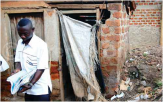


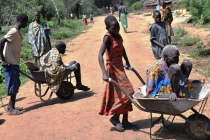

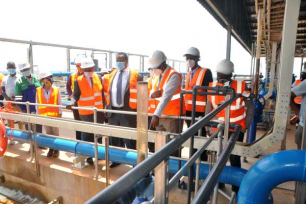
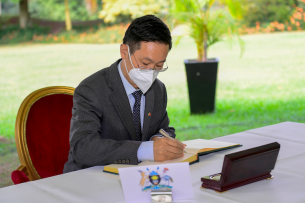
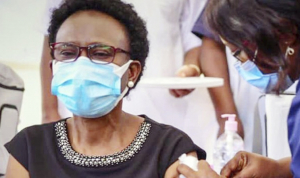
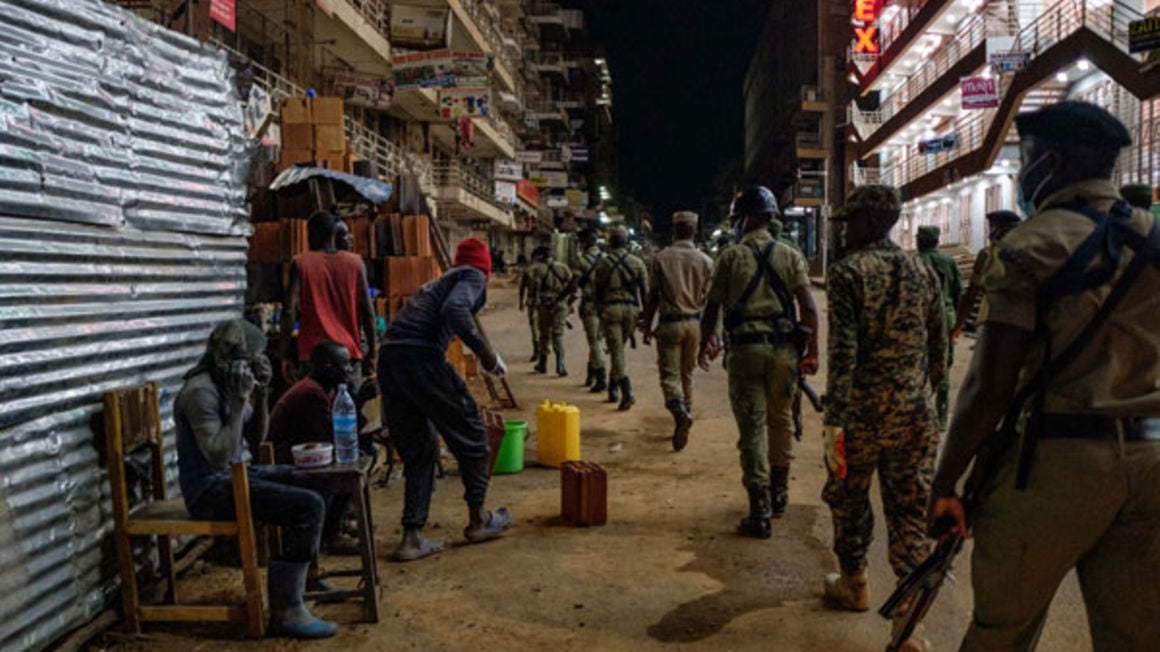
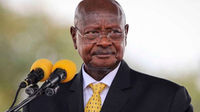
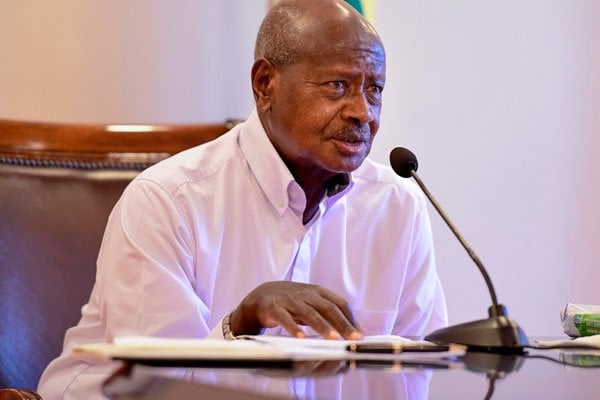
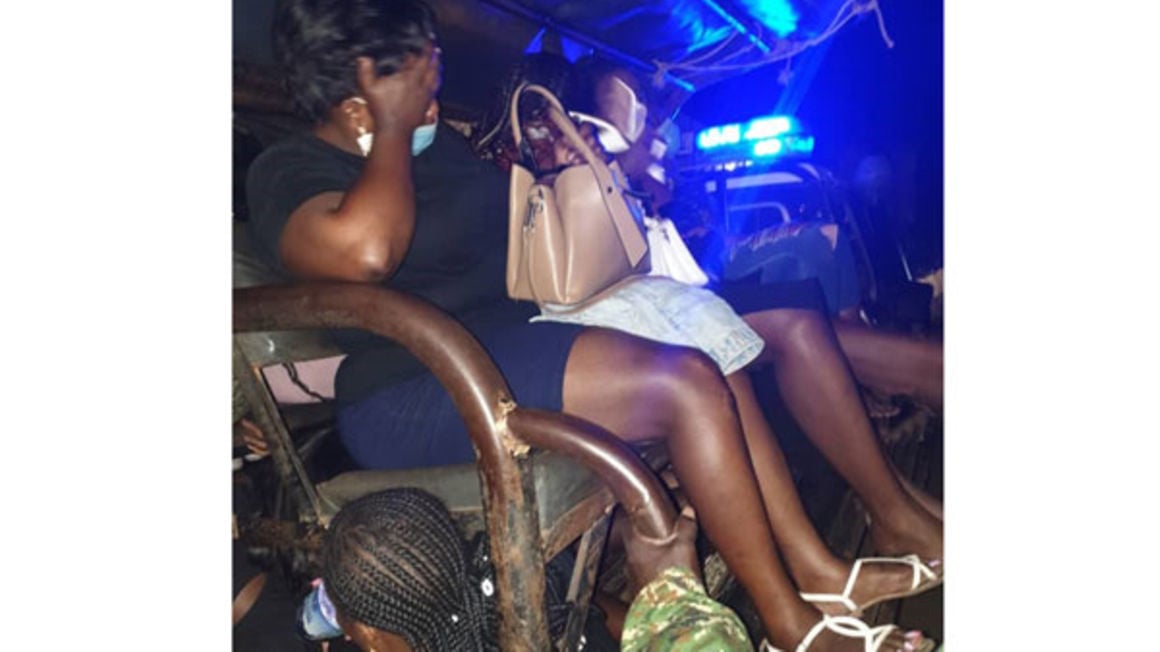
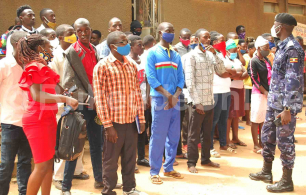
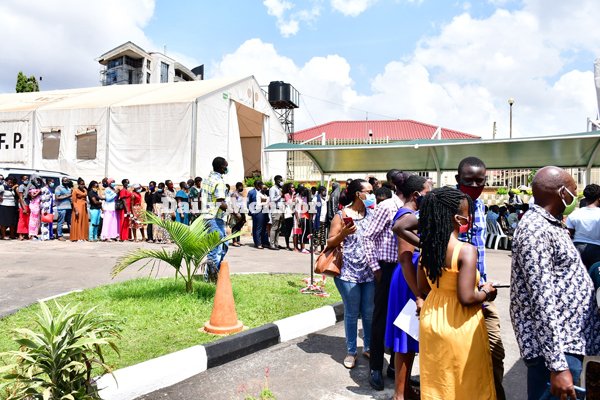
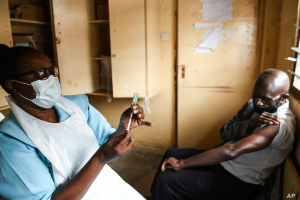
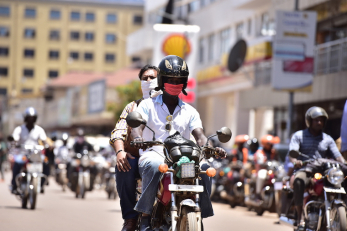 Motor cycling in public in the city of Kampala, Uganda
Motor cycling in public in the city of Kampala, Uganda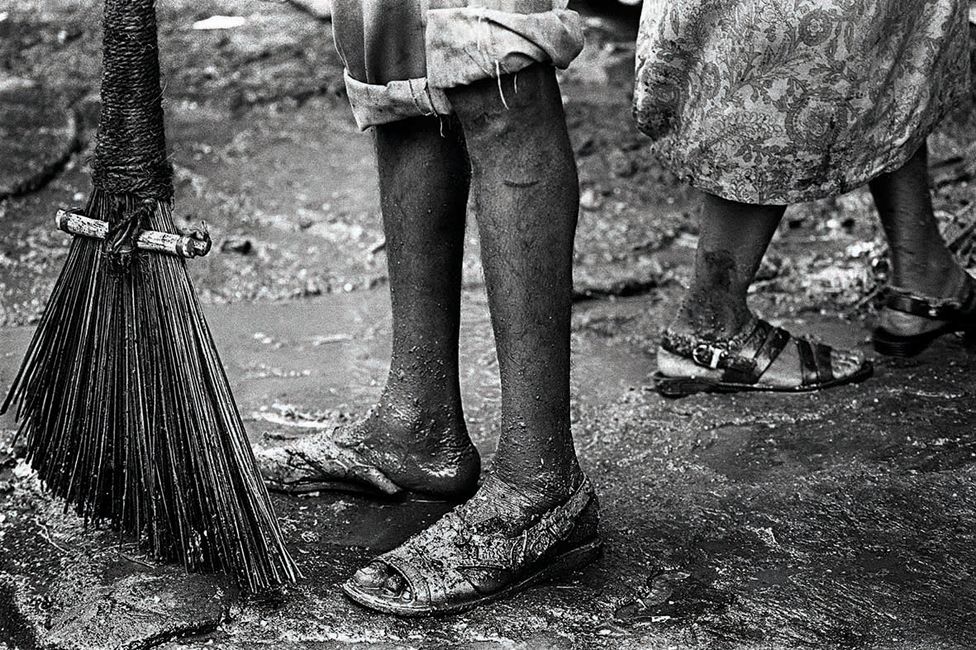
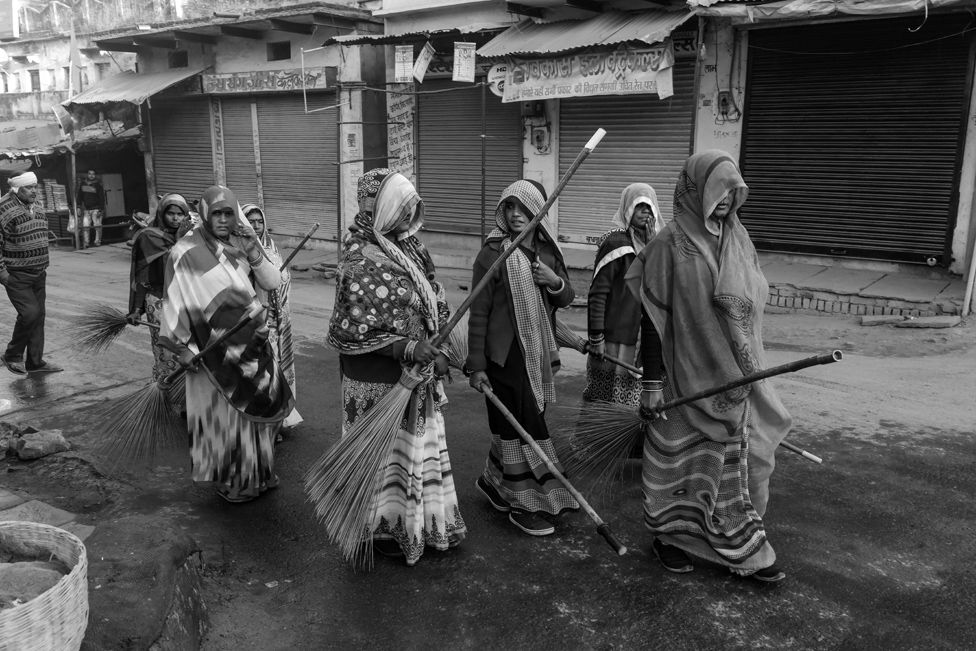
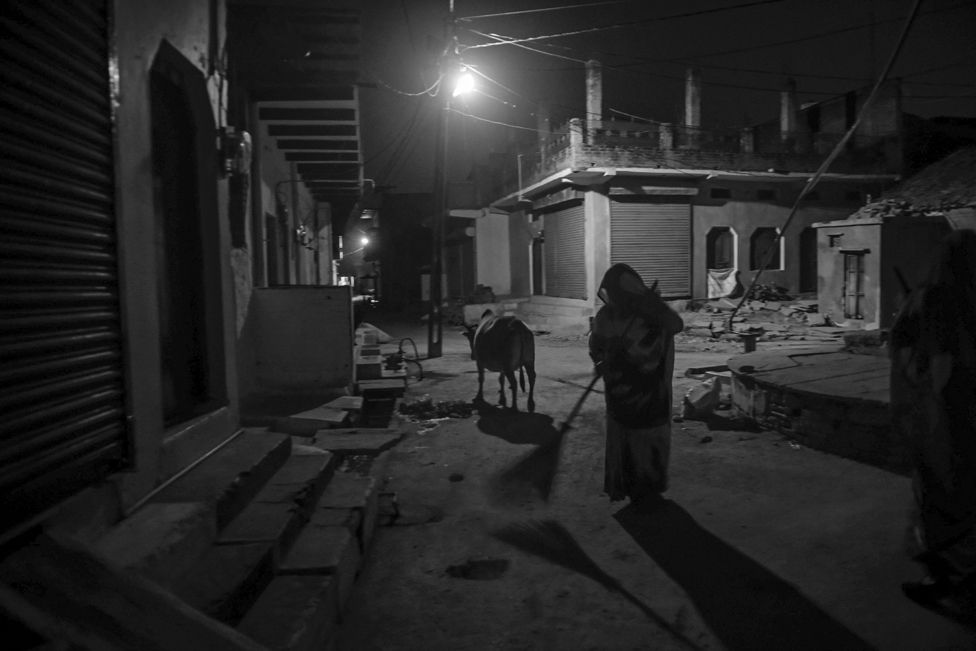
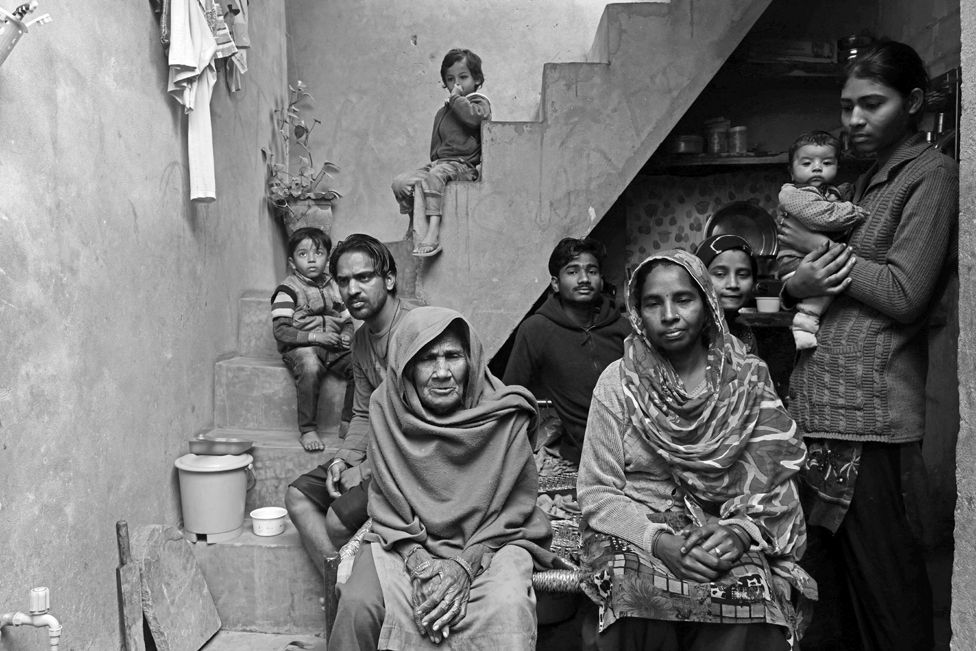
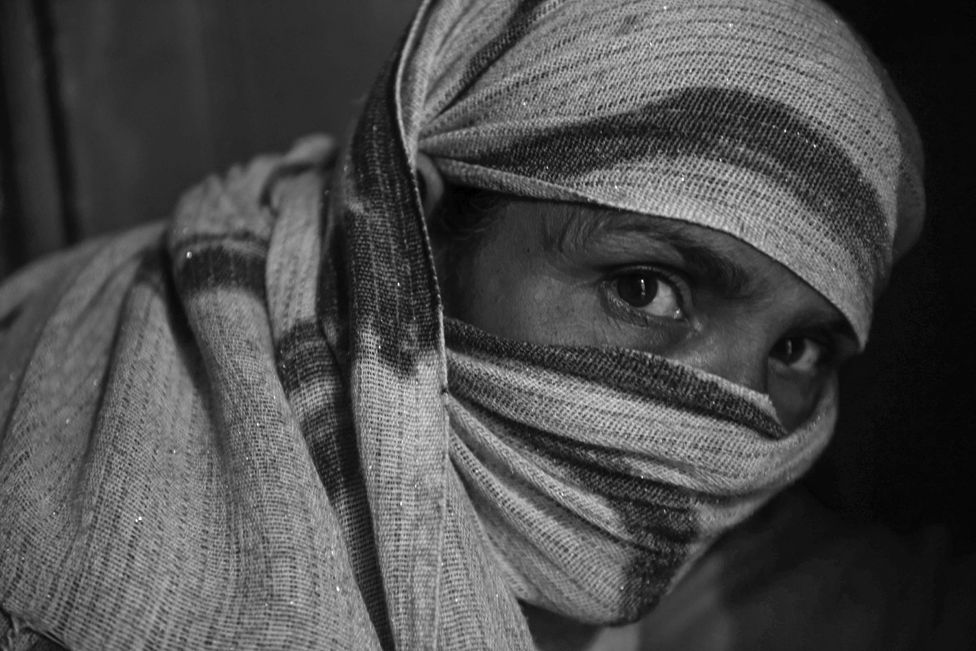
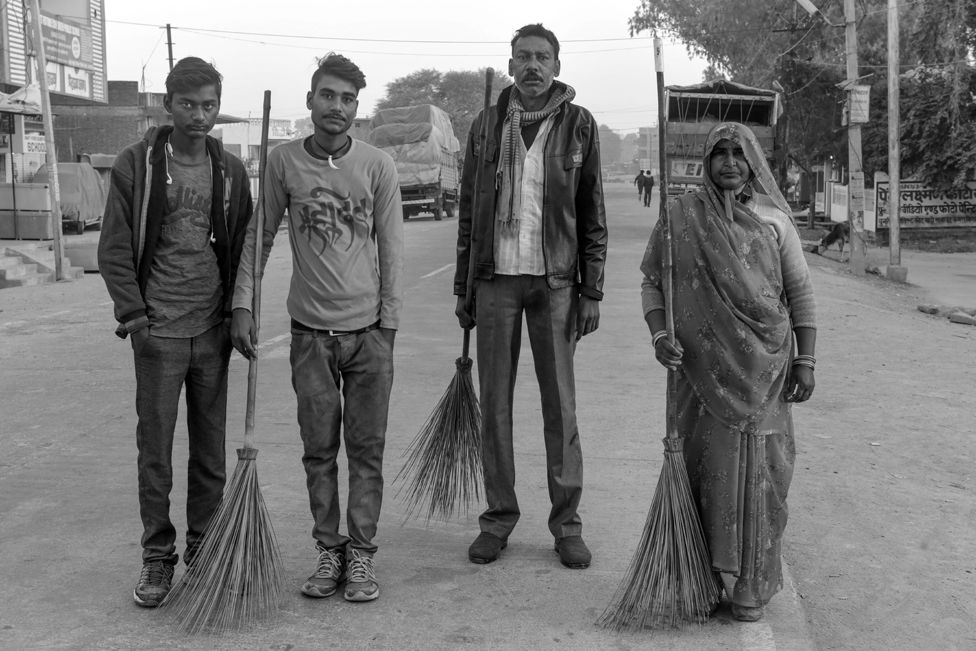
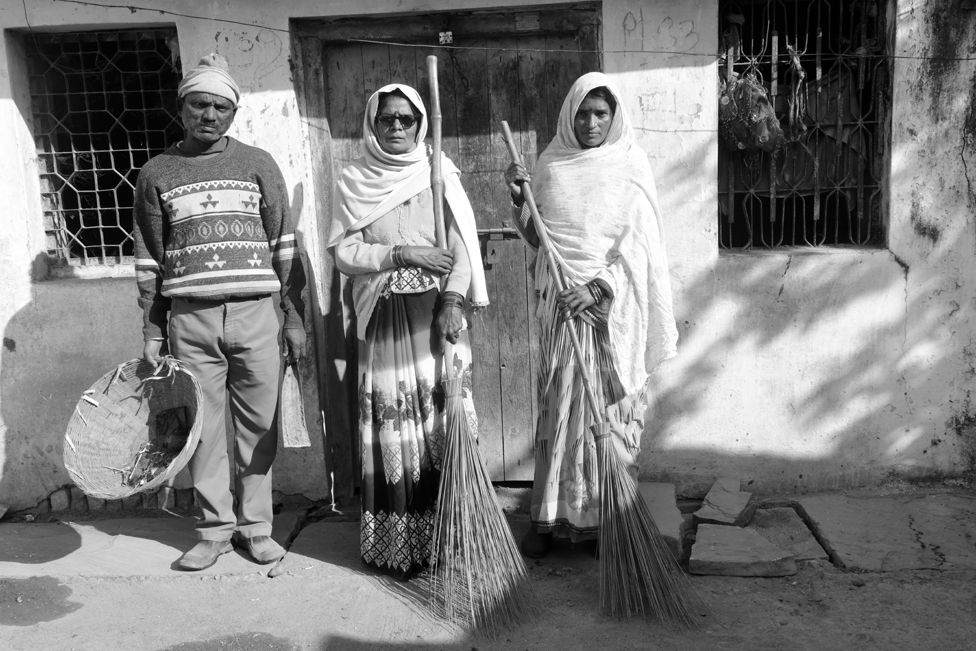
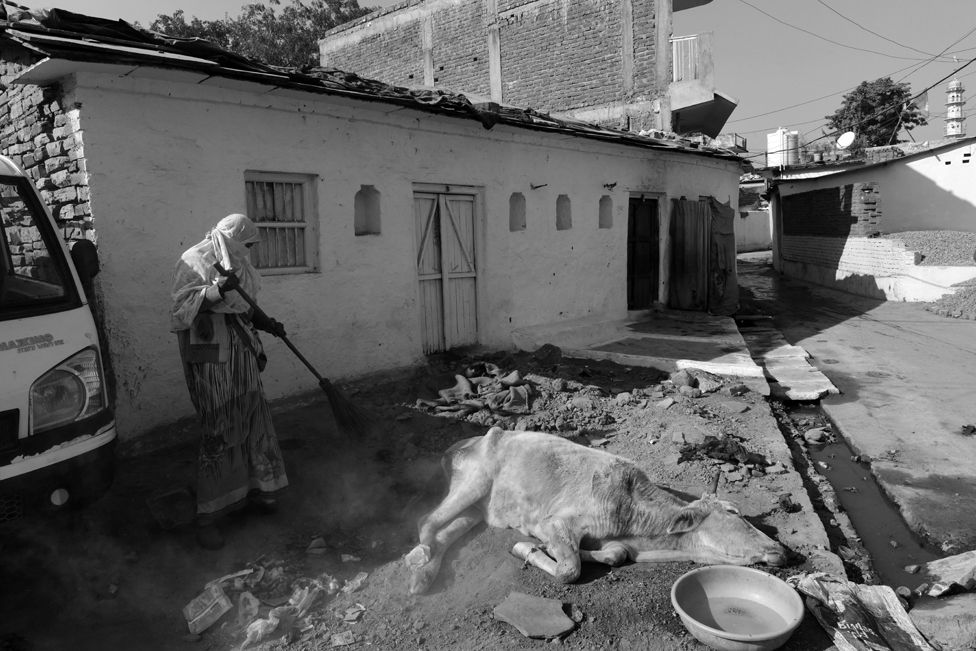
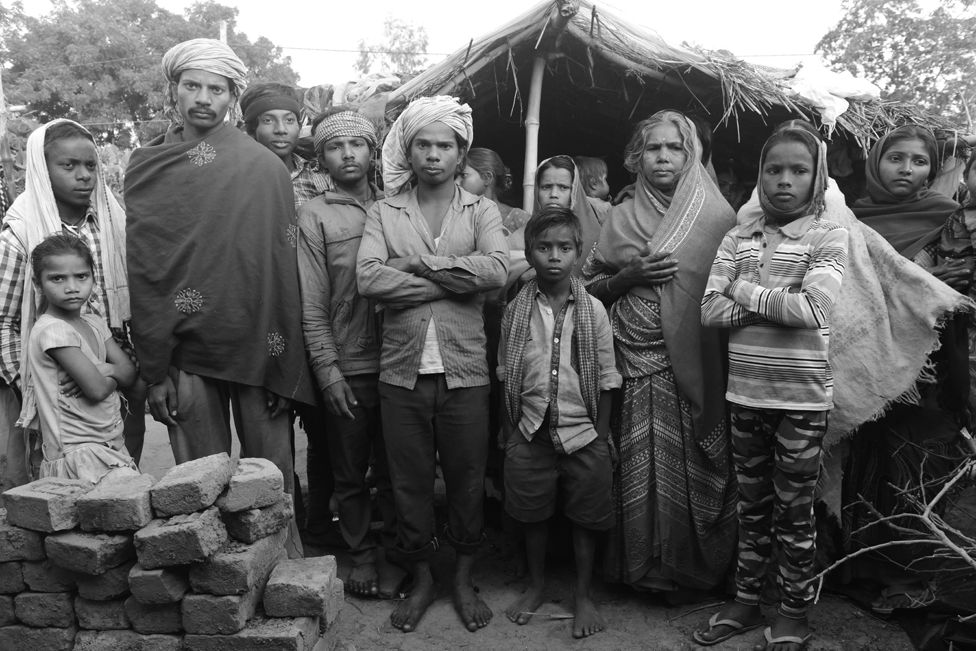
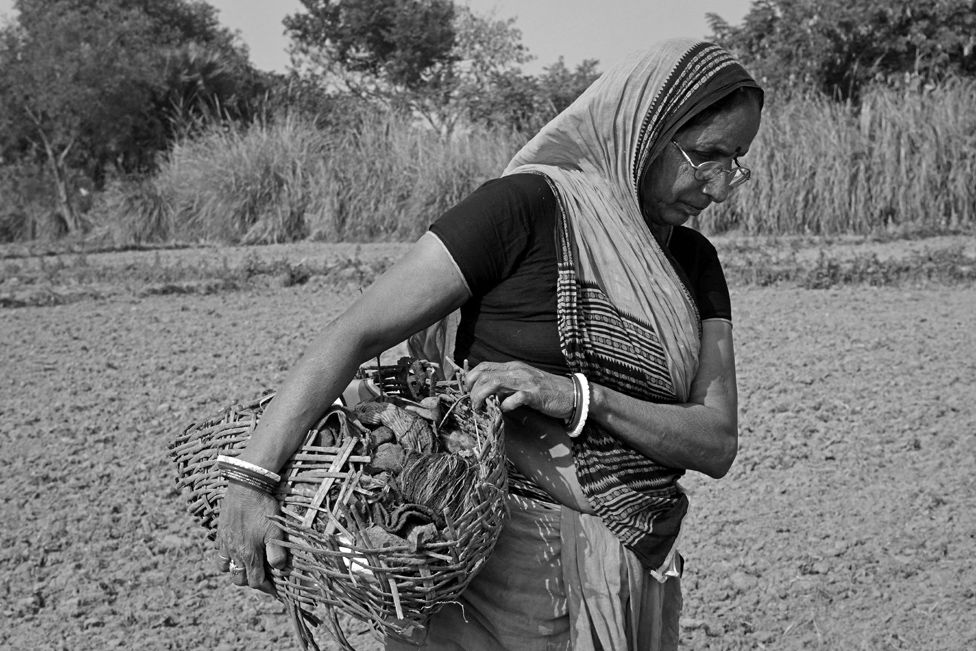
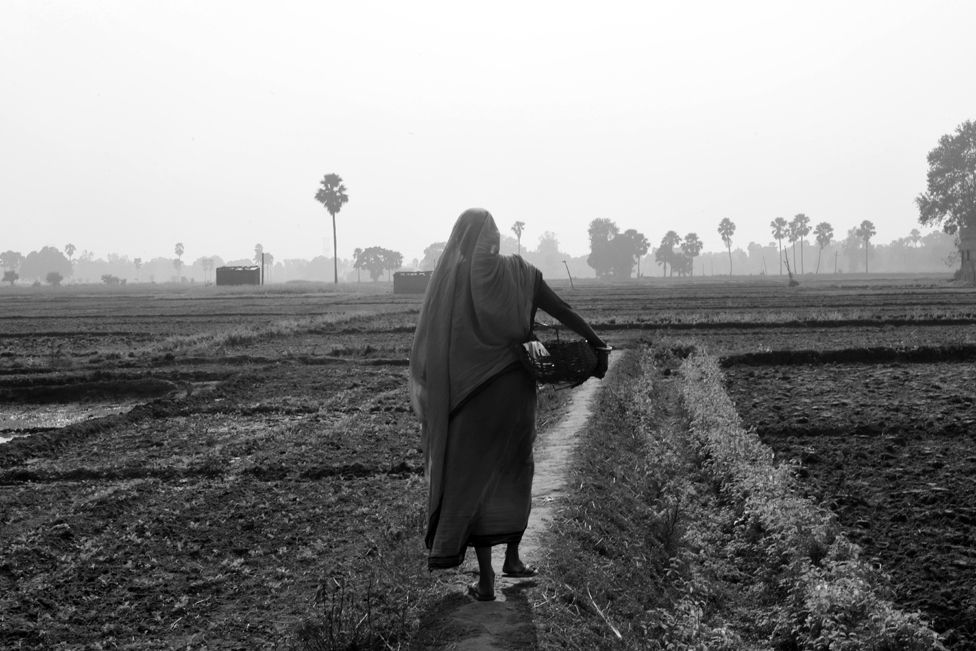



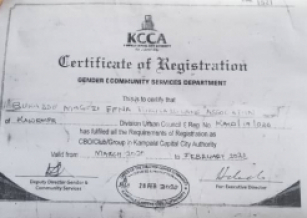




If this country in the first COVID19 lockdown had learnt any lessons, and relied on its own resource to administer this vaccine, about 20 million citizens would by now be vaccinated without the need for a second lockdown.
If part of the police, the army and the educated public came together to follow an organized immunized program for the 47 million people of this country, without a curfew or lockdown, working 24 hours a day 7 days a week, by August 2021 this country would be living normally.